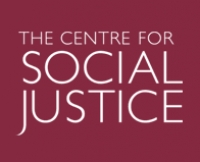The ABC Responds to the Centre for Social Justice Comments About Work
Saturday 18 November, 2017 Written by Simon Collyer
The Centre for Social Justice was co-founded by Iain Duncan Smith. Here is what Edward Davies, Policy Director, has to say about Universal Credit and the coming budget. Iain Duncan Smith’s favorite think tank the Center for Social Justice says tax cuts should be abandoned and the extra cash poured into Universal Credit instead.
Edward oversees the work of the policy research team at the CSJ. He joined the organisation from the Health Foundation where he was a Policy Fellow for two years. Prior to this he spent the majority of his career working as a journalist, specialising in health and social care policy.
This included seven years as an editor at the BMJ and writing for a range of trade and general publications from Medeconomics to The Guardian. He began his career as a research analyst in the pharmaceutical industry.

Image: Edward Davies, Policy Director, Centre for Social Justice.
+++
Next week’s Budget must support Universal Credit.
In recent weeks I’ve had the privilege of visiting three very different frontline charities. Ostensibly they worked in the areas of housing, youth, and prisons. All three talked about the importance of ‘life change’.
But when pushed on what life change really means for the people they work with, all three had a staggeringly simple and identical response: a job.
There is the obvious economic benefit of this but they also talked about it in terms of dignity and purpose. For people living in chaotic circumstances a job offers routine and a stake in society more than anything else the charities can do. It is the surest tool in our armoury to encourage human flourishing.
It is for exactly this reason that in recent weeks, while many have criticised Universal Credit (UC), the CSJ has been a vocal supporter.
Research among early adopters of UC finds that you are more likely to find job, more likely to work more hours, and more likely to earn more on UC than on the legacy system.
It all adds up to a potential quarter of a million more people in work. This does not just mean 250,000 lives changed. It also changes the chances of their families and communities. A working household can fundamentally change a child’s future. We must not jeopardise this.
And we at the CSJ have also seen it happening first hand in job centres and workplaces around the UK. This example is taken directly from a UC claimant’s journal earlier this year: “I would like to close my claim for UC from today 9th June, as I will be working 30 hours a week and maybe more. I'm truly grateful to yourself and all the team who have helped me since November. I would like to say a very big thank you to you all!!! And all the best! Thank you once again. Really happy to be back to work. Thank you always.”
All that said, individual stories of hardship are emerging, and if UC and people are to thrive, these must be addressed. For that reason, we are asking for two pieces of investment in next week’s budget.
Firstly, along with a number of other individuals and organisations, we would like to see an end to the seven waiting days. This was not part of the CSJ’s original design. UC is partly meant to encourage employment by replicating it and there isn’t a job in the world that asks you to work the first seven days for free. At a cost of roughly £150m this is a relatively affordable and straightforward thing to adjust.
Secondly, however, we would like to see far bolder investment in the system. The 2015 Budget cut the work allowances in UC. Work allowances are the amount of money a person can earn before their benefit starts to taper away and so they give an important financial support for individuals taking that first step into work.
It’s easy to call it a work incentive but it is far more than that – it is a ladder into self-sufficiency where the old system offered a cliff edge.
We want to see these allowances restored to their original level at a cost of more than £3 billion. We recognise this is expensive and fully understand that the Government must act with financial constraint. We are asking the Government not to pause UC, but instead to pause the rise in the personal tax threshold which is being given to the entire population and instead refocus those savings directly at the people that most need it, through UC.
It is a smart use of tight resources that will ensure every penny is directed at supporting a pathway into work and turning lives around.
We also recognise that rolling out a new system like UC is not straightforward, but as an organisation that fundamentally believes in giving every person the opportunity to flourish, we think it is the right engine to invest in.
End
ABC Comment: One in four people in Europe are economically inactive. Yes, we agree, a job can be a way out of poverty... however many jobs are part-time, low-paid and insecure. The cost of travelling to work after privatisation has skyrocketed, and there are issues around childcare. A job is not necessarily a way out of poverty, not in the way it once was. This government has slashed wages and promoted insecure work, yet it still wants people to still believe in the world of work, when automation is taking away jobs.
Universal Credit (UC) has merits, but cutting welfare – thought it may be seen to provide people with an incentive to get a job in the short-term, can in fact be cut so low, that people are more interested in focusing on short-term survival. Certainly, below a certain level of income it makes it very difficult for people to seek work and present themselves in a way they seem credible to an employer.
Some young people’s clothes are so ragged and dirty, and they look so dishevelled, that seeing them as a credible employee in an employer’s eyes is hard to imagine? Economic inequality is a breeding ground for mental illness. Sitting in the offices of a posh London think tank is not the same as living in a squalid bedsit, out in the provinces, surviving on a pittance.
The underclass today is in a terrible financial plight. Getting a job or going onto UC and waiting weeks to get paid, is like climbing Everest for some people [harder even]. You get paid end of month one in your new job and much of your support is stopped. You are back where you were when you started. You starved to complete the first month, eating at the soup kitchen, and now you have £300 after bills to last month two. You wonder why UK productivity is lower than France, that has a two hour lunch break? Poor wages might explain it?
The Centre for Social Justice want to see UC changes and we agree that the seven days waiting should go. Allowing people to keep more of what they earn is also welcomed, however the treatment of the self-employed needs completely revisiting and when we last checked you could not be a director and on UC? People who found not-for-profits, but do not take salary are under threat. BIG Society was meant to promote the third sector. The right to associate with others is a legal right in European law and we will be looking into this aspect of UC in due course.
Since 2010 the poorest have been hardest hit, with the lowest earners set to lose 10 percent of their incomes by 2022. Something needs to be done.
Leave a comment
Make sure you enter all the required information, indicated by an asterisk (*). HTML code is not allowed.
Join
FREE
Here










